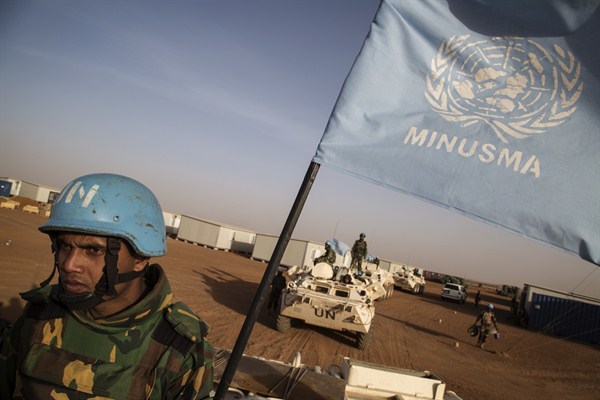This fall the United Nations will celebrate its 70th birthday. As for most 70-somethings, the commemoration evokes nostalgia for a more idealistic time, reflections on creaky joints and renewed hopes for the future. To be sure, this grand edifice of mid-20th century geopolitics needs some serious refurbishing to align its mission and capabilities with the demands of the 21st-century world.
Migration crises affecting Africa, Europe and Asia in unprecedented numbers; war in Sudan and enduring conflict in Mali, the Democratic Republic of Congo and elsewhere; and failing U.N. peace processes for Syria and Yemen show clearly that the current global governance mechanisms are insufficient. Given this general environment, when the heads of state arrive in New York in September, the tone will not be triumphant.
One of the largest conceptual challenges is that the U.N.’s decision-making culture rests heavily—too heavily—on the consensus of the member states that created it, and functions too often to protect the interests of the nation-state as the fundamental unit of political authority and legitimacy.

